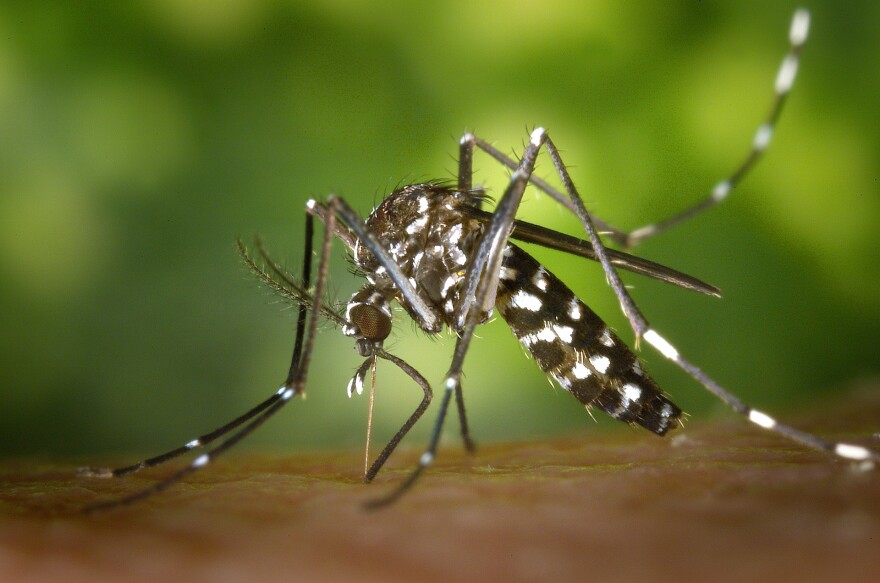The Michigan Department of Health and Human Services says the Asian tiger mosquito has been detected in Wayne County for the first time this year.
The Asian tiger mosquito is an invasive mosquito that comes from tropical and subtropical climates. In recent years, it’s been moving further north due to warming climate trends. The mosquitoes have a tendency to arrive in new areas from places where they are currently established, due to commercial shipping.
The mosquito is an efficient carrier of viruses that can transmit diseases like Zika, dengue, and chikungunya to the people it bites.
Michigan State University Entomology Professor Ned Walker says there has been no evidence of local transmission of viruses associated with the Asian tiger mosquito.
"But the mosquito that can carry them appears to be pushing its way into at least the southern tier of our state. So there’s the potential for that to happen.”
Since its initial discovery in the state in 2017, the species has reappeared nearly every year. The Asian tiger mosquito was subsequently found in 2018 and 2020, with both occurrences taking place in Wayne County.
Walker questions if these are annual reinfestations or if they are local populations that were never completely extinguished.
“There’s the possibility that this mosquito has established in these places in Michigan and even though there are efforts to control it, those efforts are only partially successful.”
The MDHHS has partnered with local health departments in counties across the state to monitor the two mosquito species that can carry the Zika virus and other tropical diseases.
Michigan health officials advise following these steps to avoid contracting a mosquito-borne illness:
- Apply an insect repellent containing DEET or another EPA-approved repellent to exposed skin and clothing.
- Wear loose-fitting and covering clothing such as long sleeves and pants while outdoors.
- Repair any holes in door or window screens to prevent mosquitoes from getting inside.
- Once a week, empty or change any standing water in buckets, birdbaths, kiddie pools, and more.
- Avoid the early evening through the early dawn hours where mosquitoes are most active.
McKoy's story is brought to you as part of a partnership between WKAR and Michigan State University's Knight Center for Environmental Journalism.

